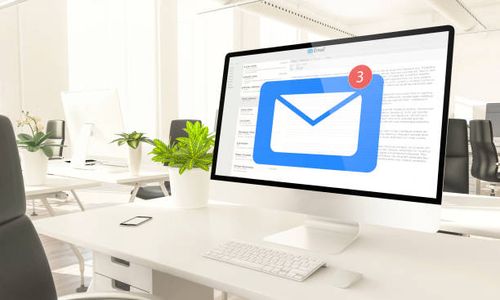Email has become an integral part of our daily lives. We use it for work, personal communication, and everything in between. Despite its ubiquity, there are still many things that people don't know about email. In this article, we'll cover some need-to-know facts about email that can help you become a more effective email user.
Email is not secure
One of the biggest misconceptions about email is that it is secure. Unfortunately, this is not the case. When you send an email, it travels through multiple servers before it reaches its destination. Each of these servers has access to the contents of your email. Additionally, email services are vulnerable to hacking, which can result in your emails being intercepted and read by unauthorized parties.
To protect your email, it's important to use encryption. Encryption ensures that the contents of your email are scrambled and can only be read by the intended recipient. There are many email services that offer encryption, including ProtonMail, Tutanota, and Gmail.
Email is not instant
Another misconception about email is that it is instant. While email can be sent and received quickly, it is not always instantaneous. The speed at which your email is delivered depends on factors such as the size of the email, the number of recipients, and the speed of your internet connection.
To make sure your emails are delivered as quickly as possible, it's important to optimize your email settings. This includes reducing the size of your attachments, avoiding sending emails to large groups of people, and ensuring that your internet connection is stable.
Email etiquette is important
Email etiquette refers to the set of rules and guidelines that govern how emails should be written, formatted, and sent. Following email etiquette is important because it helps ensure that your emails are professional, clear, and effective.
Some basic email etiquette tips include using a clear subject line, addressing the recipient properly, avoiding the use of all caps or excessive punctuation, and proofreading your email before sending it.
Email overload is a real problem
Email overload refers to the situation where you receive more emails than you can effectively manage. This can be a real problem, as it can result in important emails being missed or ignored.
To avoid email overload, it's important to manage your inbox effectively. This includes setting aside specific times of the day to check your email, using filters and labels to organize your emails, and unsubscribing from newsletters and other emails that you don't need.
Email marketing can be effective
Email marketing refers to the practice of sending promotional emails to customers and potential customers. While some people view email marketing as spam, it can be a highly effective way to reach your target audience.
To make your email marketing campaigns effective, it's important to follow best practices. This includes segmenting your email list, using a clear and compelling subject line, providing value to your subscribers, and tracking your results.
Email can be used for productivity
Email is often viewed as a distraction, but it can actually be used to increase productivity. By using email to schedule meetings, delegate tasks, and communicate with colleagues, you can streamline your workflow and get more done.
To use email for productivity, it's important to be clear and concise in your emails. This includes using bullet points and headings to break up long emails, avoiding unnecessary details, and focusing on the action that needs to be taken.
Email can be personalized
Personalization refers to the practice of tailoring your emails to the individual recipient. By personalizing your emails, you can increase engagement and build stronger relationships with your subscribers.
To personalize your emails, it's important to use the recipient's name, address their specific needs and interests, and segment your email list based on demographics and behavior.
Email can be optimized for mobile
More and more people are accessing their email on their mobile devices. To ensure that your emails are effective on mobile, it's important to optimize them for mobile devices.
This includes using a responsive design that adapts to different screen sizes, using a clear and concise subject line, using a single-column layout, and avoiding the use of small fonts and buttons.
Conclusion
Email is a powerful tool that can help us communicate more effectively and efficiently. By understanding the need-to-know facts about email, we can become more effective email users and get more out of our email experience. Whether you're using email for work, personal communication, or marketing, there are always ways to improve your email game. By following best practices and staying up-to-date with the latest trends, you can make sure that your emails are always on point.



